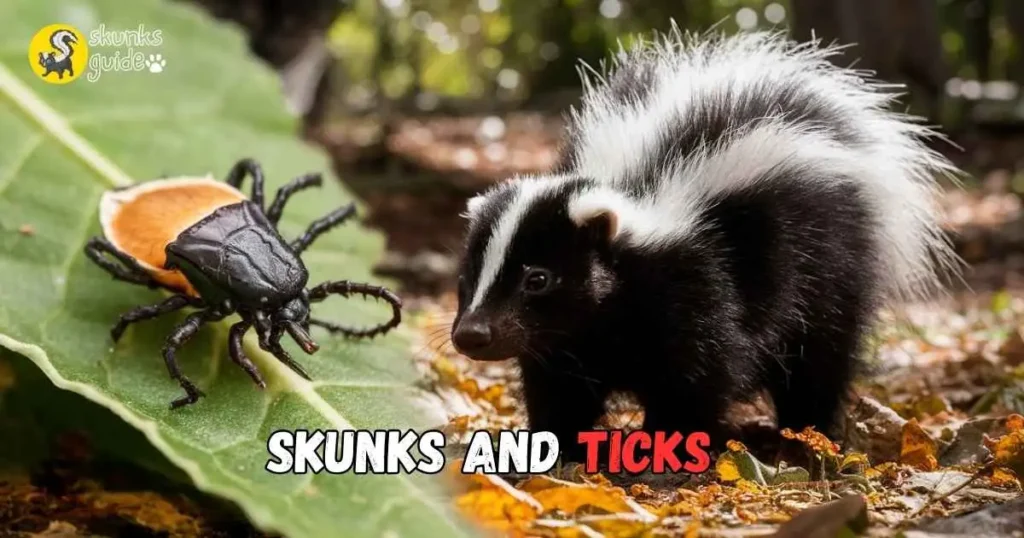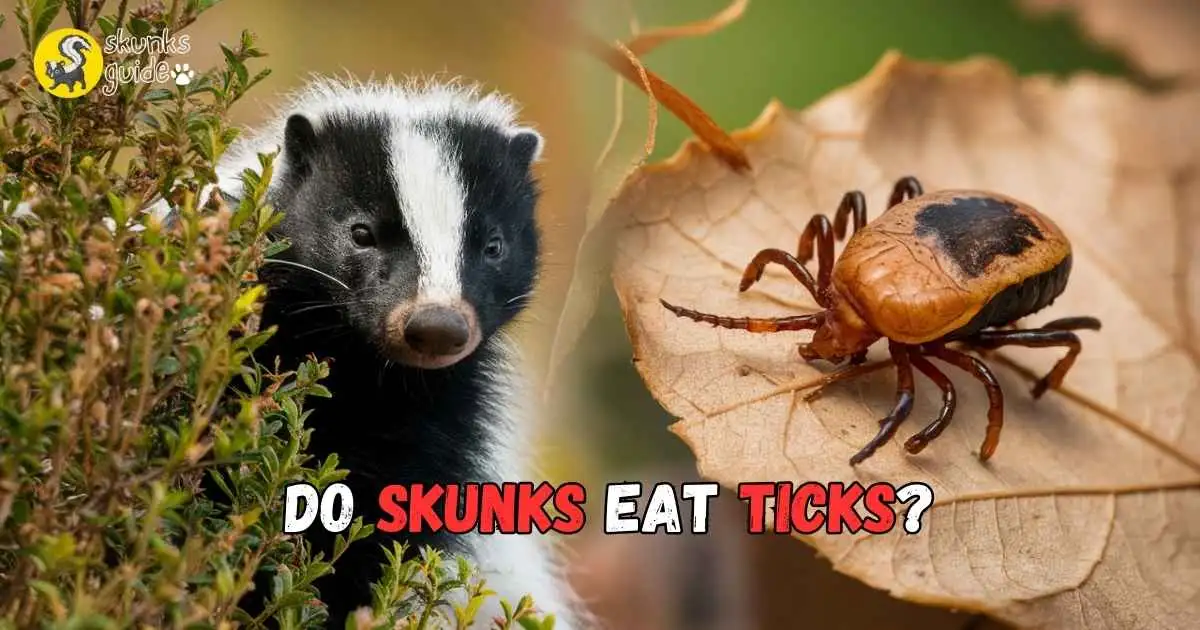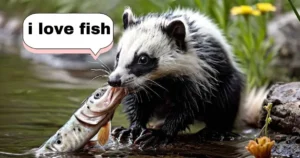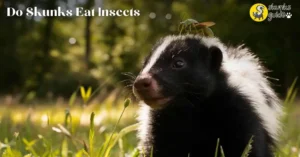Can Skunks Eat and Control Ticks?
Yes, Skunks Eat Ticks! As someone who owns a pet skunk and studies wildlife, I can tell you that skunks munch on ticks, helping control their population. Want to know more about how skunks benefit us and our ecosystem? Keep reading to learn more!
Skunks And Ticks
Many people wonder about the eating habits of skunks and whether they include tiny creatures like ticks. Skunks are known for their distinctive black-and-white coloring and their unique defense mechanism, but their role in controlling pests is often overlooked. This includes their appetite for ticks, which can benefit the environment and human health. Let’s dive into what skunks eat and discover how they help in the battle against these pesky parasites.

Skunks’ Diet
Skunks are omnivorous animals, which means they eat both plants and animals. Their diet is quite diverse and changes with the seasons. In the wild, a skunk’s diet typically includes:
- Fruits and berries
- Insects and larvae
- Small rodents
- Eggs
- Amphibians
- Reptiles
Among the insects and small creatures they consume, ticks are a part of their diet. Skunks actively search for ticks in the grass and underbrush, using their sharp claws to dig them out. The table below shows the percentage of a skunk’s diet made up by various food types:
| Food Type | Percentage |
|---|---|
| Plants | 30% |
| Insects | 50% |
| Small Animals | 10% |
| Miscellaneous | 10% |
Although ticks make up a small portion of their diet, skunks contribute to controlling tick populations. This is especially beneficial in areas where ticks carry diseases like Lyme disease.
How Skunks Benefit From Eating Ticks
When skunks eat ticks, they provide a natural form of pest control. Here are some benefits of skunks consuming ticks:
- Reducing tick-borne diseases: By eating ticks, skunks help lower the risk of diseases spread by tick bites.
- Protecting wildlife: Skunks help keep tick populations in check, which protects other animals from tick infestations and associated illnesses.
- Supporting ecosystem balance: As part of the food chain, skunks maintain ecological equilibrium by controlling insect and small rodent populations.
Skunks have a keen sense of smell, which they use to locate ticks in their habitat. Once they find ticks, they consume them, thus playing a role in controlling the tick lifecycle. By breaking the cycle of tick reproduction, skunks prevent the spread of ticks across various areas. Below is a list of the benefits skunks provide by eating ticks:
- Natural pest control
- Less chemical pesticides needed
- Healthier environment
Overall, the skunk’s diet, including ticks, showcases nature’s intricate food web and highlights the importance of every species in maintaining a healthy ecosystem. Skunks not only add to the biodiversity but also serve as a natural defense against the spread of tick-borne diseases.
Are Skunks Effective In Controlling Tick Population?
Skunks are known for their strong smell. But, they also eat ticks. People wonder if skunks can help control tick populations. Let’s explore how effective they are.

Research Studies
Several studies have looked into skunks and ticks. These studies show that skunks do eat ticks. Here are some key points:
- Skunks search for food at night. This is when they eat ticks.
- They eat various small creatures, including ticks.
- A single skunk can eat a lot of ticks.
One study showed the following data:
| Skunk | Ticks Eaten Per Night |
|---|---|
| Skunk 1 | 50 |
| Skunk 2 | 45 |
| Skunk 3 | 60 |
This data suggests skunks can eat many ticks. But, there’s more to the story.
Limitations Of Skunks As Tick Control
While skunks eat ticks, they can’t control the tick population alone. Here’s why:
- Skunks need lots of food. Ticks are just a small part of their diet.
- They can’t reach all areas. Skunks might not go into deep woods where many ticks live.
- Skunks have predators. This can reduce their numbers.
Also, skunks can carry diseases. People should not rely on them too much. Here are more reasons:
- Skunks might not eat enough ticks to make a big difference.
- They can spray a strong smell if scared. This is not good near homes.
- It’s hard to attract skunks without causing other problems.
So, skunks eat ticks but are not the best solution for tick control.
Potential Risks Of Skunks Eating Ticks
Skunks are known for their striped coats and distinctive smell. They also eat pests, including ticks. While this may seem beneficial, risks exist. Skunks might become carriers for diseases found in ticks. Understanding these risks is vital for wildlife and pet health.
Transmission Of Diseases
Ticks carry various illnesses that can affect both animals and humans. When skunks consume these tiny creatures, they might get infected with diseases such as Lyme disease or Rocky Mountain spotted fever. Here’s why this matters:
- Skunks can spread diseases to pets and humans if they become carriers.
- Not all ticks are visible on the skunk’s fur, making it hard to know if they are carrying these pests.
- Bites from infected skunks could transmit diseases to other animals or people.
Let’s look at some data in a table:
| Disease | Transmission Rate | Common Region |
|---|---|---|
| Lyme Disease | High | North America |
| Rocky Mountain Spotted Fever | Medium | South America |
| Tularemia | Low | Europe |
As the table shows, the risks vary depending on the disease and region. Pet owners and parents should stay informed and vigilant.
Prevention Measures
Reducing the risks involves several steps. Pet owners and families living near skunk habitats can take action:
- Regular pet checks for ticks after outdoor activities.
- Vaccinate pets against common tick-borne diseases.
- Keep yards clean to reduce skunk and tick habitats.
- Use tick repellents on pets when they are outdoors.
Here’s a strategy to keep everyone safe:
- Identify areas where skunks live.
- Apply safe and humane methods to deter skunks from those areas.
- Educate the community about the importance of tick control.
By following these steps, risks can be minimized. Keeping pets and families safe is a priority. It requires awareness and proactive measures. Remember to consult a veterinarian for the best advice on protecting your pets.
Frequently Asked Questions
Opossums are the animals known to consume the most ticks, eating up to 5,000 ticks per week during their active season.
A tick’s worst enemies include birds, amphibians, and arachnids like spiders. Certain fungi, nematodes, and parasitic wasps also target ticks.
Ticks have several natural predators, including birds, spiders, ants, and nematodes. These creatures often consume ticks in their various life stages, helping to control tick populations.
Conclusion
Skunks indeed play a crucial role in controlling tick populations. Their diet, which includes these pests, benefits our gardens and health. By understanding skunks better, we can appreciate their contribution to our ecosystem. Remember, these creatures are more than their notorious scent; they’re natural pest controllers.







